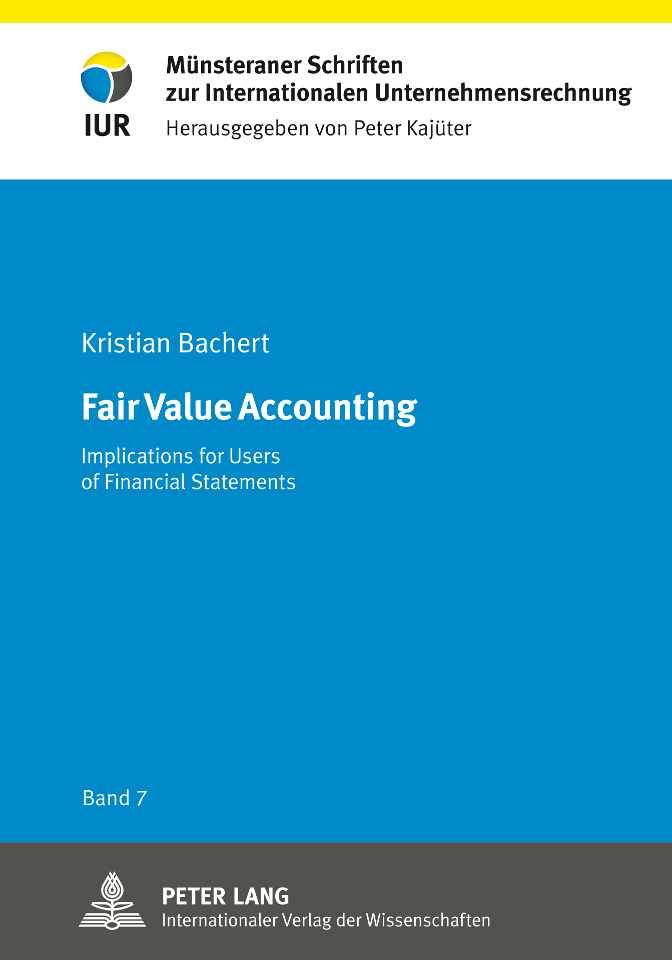Band 7
Kristian Bachert – Fair Value Accounting
Implications for Users of Financial Statements, Frankfurt a.M. et al. 2012.
 Fair value accounting is a major feature of financial reporting under IFRS. It is assumed to provide more timely and relevant information for users of financial statements compared to historical cost. Thus, several standards either require assets to be measured at fair value or at least provide an option to fair value measurement. However, the global financial crisis led to a considerable debate about the usefulness of fair values in financial statements. Opponents of the fair value regime argue that fair value measurement of assets and liabilities is potentially misleading, especially when fair values are not derived from active markets.
Fair value accounting is a major feature of financial reporting under IFRS. It is assumed to provide more timely and relevant information for users of financial statements compared to historical cost. Thus, several standards either require assets to be measured at fair value or at least provide an option to fair value measurement. However, the global financial crisis led to a considerable debate about the usefulness of fair values in financial statements. Opponents of the fair value regime argue that fair value measurement of assets and liabilities is potentially misleading, especially when fair values are not derived from active markets.
Based on these contradicting views, this study empirically investigates the implications of fair value accounting in financial statements prepared under IFRS. It comprehensively examines implications for both professional and nonprofessional investors. The first study with financial analysts is developed as an archival-based study incorporating a large sample of firm-years from seven countries of the European Union. An experiment with third-year bachelor and master students as nonprofessional investors is used for the second study.
The results are twofold. It is shown that financial analysts find it more difficult to produce precise forecasts under a fair value regime compared to historical cost. In addition, analysts are less likely to follow fair value firms. These findings point to potential disadvantages of fair values, especially when they cause volatile earnings which are more challenging to predict. However, the study with students representing nonprofessional investors shows the opposite: When confronted with a company relying more on fair value measurement, the participants are more likely to make an investment compared to the same company relying more on historical cost. Additionally, participants are more confident with their judgment for fair value firms, potentially resulting from a better information environment. The results have important implications for investors and preparers of financial statements. On the one hand, investors relying on financial analysts’ forecasts should be aware that earnings forecasts for fair value firms deviate more from realized numbers than those for historical cost firms. On the other hand, fair values in financial statements can lead to greater volatility and higher share prices which should be advantageous for preparers of financial statements.


